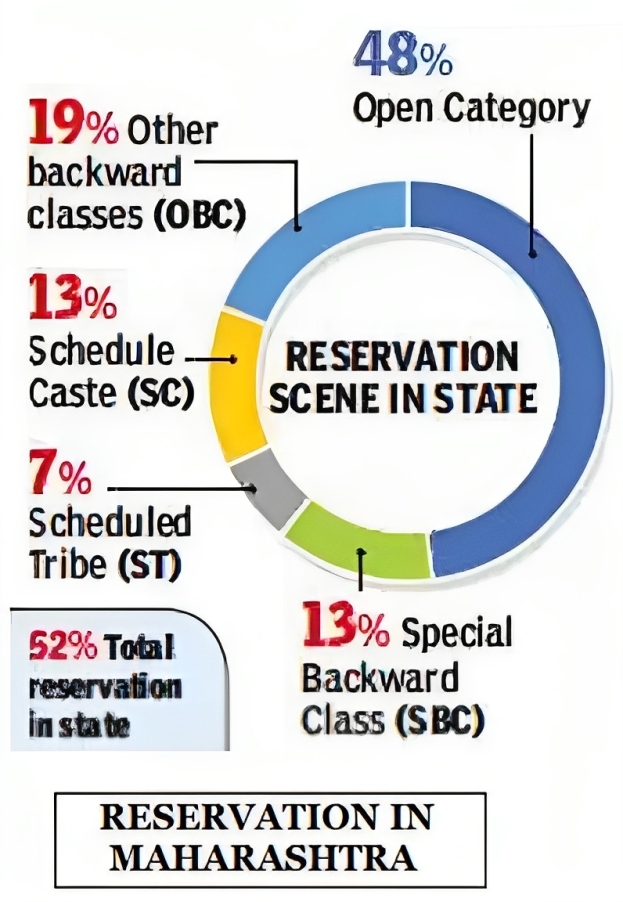7667766266
enquiry@shankarias.in
Recently, an activist Manoj Jarange Patil has been demanding a blanket reservation in education and government jobs for all Marathas in the State.
Currently, Maharashtra provides 52% reservation for different communities.

|
Committee |
Opinion on Reservation for Maratha |
|
Kaka Kalelkar commission, 1955 |
|
|
B.D.Deshmukh Committee, 1964 |
|
|
Mandal Commission, 1979 |
|
|
Rane Commission, 2014 |
|
|
Justice M.G. Gaikwad Commission, 2017 |
|
References